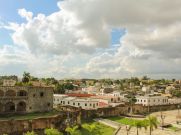Editor’s Note: In 2006, a bill was submitted in the Missouri Legislature (House Bill 213) by Rep. Jane Cunningham entitled “The Emily Booker Intellectual Diversity Act.” Emily Booker was a social work student at Missouri State University who filed a lawsuit after one of her professors required the entire class to sign a letter supporting gay adoption. Ms. Booker refused to sign due to religious beliefs, and her lawsuit was upheld in the courts. The proposed legislation was designed to address some of the issues raised in the case by requiring Missouri public colleges and universities to take steps to insure tolerance of diverse perspectives in the classroom and on campus. Although the legislation did not pass, it did stimulate efforts by the University of Missouri board of curators and administrators to respond to these concerns. This included the organization of a forum on “intellectual diversity,” held 11 October 2007 on the campus of the University of Missouri–St. Louis (UMSL). Professor Rochester was one of the faculty panelists. These are his remarks.
In the short amount of time I have, I want to make a few points, and I will be happy to expand upon these in the question and answer period, if you like.
Point 1: We hear the term “diversity” uttered a lot these days in America, especially on college campuses, and we are rightly told how important diversity is in enriching the classroom experience. When we use the term, we usually refer to racial, ethnic, gender, and socioeconomic diversity. That’s well and good, but I would submit that the single most important type of diversity we can have in academia is a diversity of ideas—that is, “intellectual diversity”—which I do not think has been adequately addressed and which is why I welcome this forum here today.
The point is, just because you have a mix of blacks, whites, Hispanics, Asians, men and women, or whatever in a classroom, it does not necessarily mean that diverse ideas are being represented, unless you fall into the trap of stereotyping whole groups and assuming that there is a white point of view, a black point of view, a female point of view, etc. I hope we can all agree that we should treat people as individuals and not as members of categorical, ascriptive groups.
Point 2: Even if the students in a classroom represent intellectual diversity, the faculty instructor may not entirely foster it. I would concede that conservatives like David Horowitz can be criticized for making sweeping generalizations about the lack of intellectual diversity among faculty and for exaggerating the problem. Nevertheless, I would also argue that there is at least some partial validity to their concerns, that it is a problem we should be sensitive to, and that many liberals are in denial about this.
The threat, of course, can come not only from the left but also the right. However, the fact is—based on lots of data—we know that roughly 80 percent of all professors in the humanities and social sciences (except for economics), as well as in schools of education and social work, are ideologically “liberal” or center-left and are overwhelmingly politically affiliated with the Democratic Party. One is hard-pressed to find more than a handful of conservative Republicans in any of these disciplines on this campus or virtually any campus in America. Yet roughly half the country is Republican and “conservative” or center-right.
Let me emphasize I am not saying that universities must engage in bean-counting and ensure proper faculty balance and presentation of ideas based on such percentages. Not all viewpoints deserve equal respect—the greatest respect goes to those views that are backed by the weight of evidence and sound argument—but we should at least be tolerant and open and civil toward a diverse range of views. Surely there could stand to be a bit more representation of Red State views, especially on the part of departments that so often claim to espouse democratic principles, rail against elitism, and preach the loudest about “diversity,” “critical thinking,” and “discovery learning.” If universities are all about the search for truth and knowledge, it is more likely to be “discovered” through the competition—not uniformity—of ideas.
Point 3: My own experience here at UMSL is that most of my colleagues in the political science department and other departments do encourage exposure to diverse viewpoints, through having students read “pro and con” articles and books and viewing it as their job to promote free inquiry and the dissemination of knowledge. But some do not. Some abuse their position and use the classroom as a bully pulpit to promote their personal political agendas. This in my judgment is wrong. I do not want teachers pushing their political agendas, whether from the left or the right!
The best definition of education I ever heard is “getting students to learn to cope with ambiguity.” Reality is rarely black and white. It is usually grayish, nuanced, and complex; and professors as scholars and teachers should model that. They should educate and leave the proselytizing and sermonizing to churches. None of us is 100 percent objective, but it is our obligation to try to be.
Point 4: To the extent there is a liberal bias problem in academia, I think it is not so much blatant leftist indoctrination and politicization of the classroom but rather a much more subtle, systemic phenomenon. We hear a lot about “institutional racism.” I think there is something I would call “institutional liberalism.” Let me give you a couple examples of how it works at places like UMSL.
On many campuses there are “speech codes” that have been instituted, promoted primarily by feminist and other liberal constituencies. These are usually well-intentioned, but they often have the effect of limiting the very free speech for which liberals claim to stand. For example, a few years ago at UMSL a fraternity was advertising its annual “Sexy Legs” contest by putting a poster in the quad that depicted a woman in a bikini. Under pressure from a feminist group on campus, the chancellor ordered the sign taken down, since it was considered “offensive.” I would argue that no matter how tasteless or even offensive the sign was to some, this was a case of excessive policing of free speech. Similarly, at many universities, so-called “affirmative action bake sales” organized by College Republicans to protest race preferences in college admissions have been banned because they have been deemed offensive to minorities, yet this would seem to fall within acceptable parameters of free speech. There is a bit of a double-standard that operates when it comes to what is officially deemed offensive.
I can recall around the time of the “Sexy Legs” incident a Mirthday celebration on campus at which a rock band performed whose lyrics consisted primarily of the “F” word and assorted obscenities. That was considered okay. Just last year, UMSL hosted a “White Privilege and Oppression” conference sponsored by the School of Education, which offended many whites. But that was also okay. And even this week I noticed a banner hanging in the Millennium Student Center cafeteria that brazenly contains the “N” word. That is considered okay.
There was the recent case of flag desecration at San Francisco State University. Conservative students got into trouble and were reprimanded by the administration for desecrating a Hezbollah flag, even though, had they burned an American flag, this no doubt would have been tolerated—perhaps even celebrated—as being in the finest tradition of the First Amendment. And then, of course, there is the recent case of the Iranian president Mahmoud Ahmadinejad, a Holocaust denier, being invited to speak at Columbia University—even though the Reserve Officers’ Training Corps is banned from that campus.
My next sentence may be the most important point I wish to make. My own view of all this is that free speech is not license—certainly we should not permit speech, for example, that incites to violence—but we should err on the side of maximizing speech, not minimizing it. My rule of thumb is “censure, don’t censor”: meet speech with more speech rather than banning it. And where it is necessary to restrict speech, we need to make sure that we apply the guidelines in a consistent, even-handed fashion that treats liberals and conservatives and all other groups the same way.
Another example of the double-standard is the fact that in recent years many schools of education and social work across the country (I am not sure about UMSL) have quietly added non-academic graduation requirements to their degree programs and mission statements. These come in the form of mandates that students demonstrate “social justice dispositions.” One can only imagine the uproar that would occur—and rightly so—in the UMSL senate and elsewhere on campus if the College of Business Administration tried to mandate a “capitalist disposition” requirement for its BS program. It would never be allowed. Indeed, it would be unthinkable. The bottom line is that degree programs should not contain affective, ideological litmus tests. You should be able to get a degree in theology on a college campus (certainly a public one), even if you are an atheist or agnostic.
Point 5: In conclusion, my last point is that I, too, am wary of state government overregulation of universities and intrusion into academic affairs, since it can potentially pose a threat to academic freedom. In fairness to Rep. Cunningham, the way to avoid state policing of the university is for us to take up her challenge and do a better job of policing ourselves. That is why I think these kinds of forums serve a useful, legitimate purpose.














